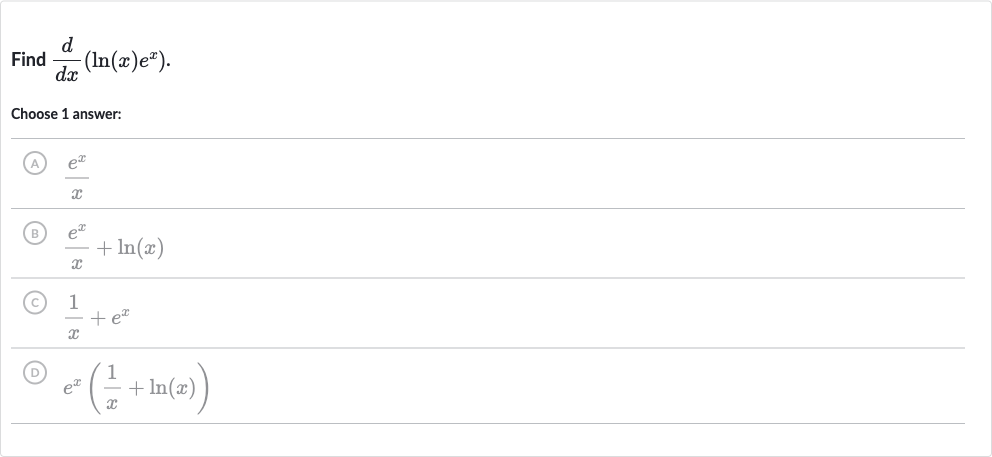AI tutor
Full solution
Q. Find .Choose answer:(A) (B) (C) (D)
- Apply product rule: Use the product rule for derivatives: .
- Identify and : Let and . Now find and .
- Find derivatives: The derivative of is , so .
- Use product rule: The derivative of is , so .
- Simplify expression: Now apply the product rule:
- Simplify expression: Now apply the product rule: Simplify the expression:

